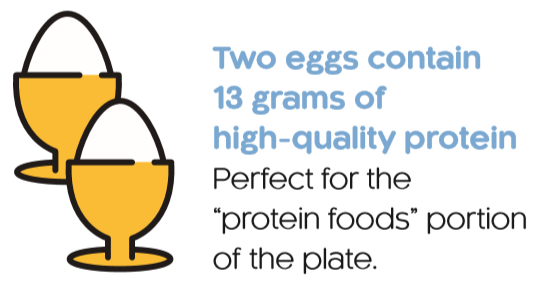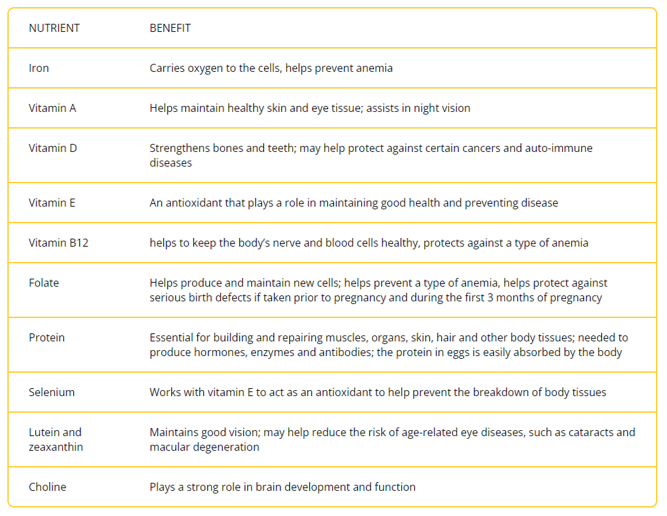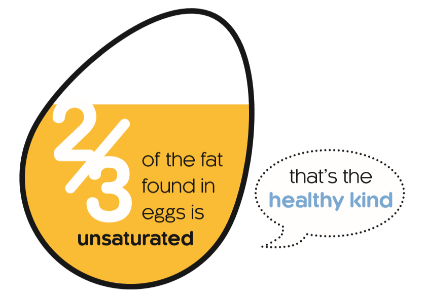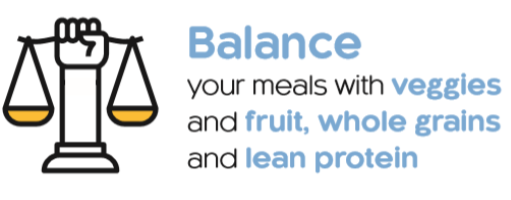All About Eggs
Eggs aren’t just delicious. They’re also extremely nutritious, an excellent source of protein and provide essential nutrients. Find out why we should include eggs as part of our diet and learn how to maintain a healthy lifestyle from our Specialized Dietitians.
From simple scrambled eggs to the trendy Japanese Omelet, Indians are enjoying eggs in so many different and delicious ways. Eggs are incredibly nutritious – they contain protein, healthy fats, and many nutrients like vitamins A, D, E, choline, iron and folate. We’re breaking down all the reasons why eggs should belong in a healthy diet… in your healthy diet.
Eggs: A Nutrient-Rich Choice in India's Dietary Palette

In a significant update to India’s Dietary Guidelines, the government has emphasized the importance of a balanced and nutritious diet. Released recently, the guidelines recommend a diverse plate that includes a substantial portion of vegetables, fruits, whole grains, and essential protein sources. Notably, eggs take center stage as a prominent protein-rich option, occupying a quarter of the plate.
Encouraging the tradition of home-cooked meals, the revised guidelines highlight the convenience and nutritional value of unprocessed foods. Eggs, being a versatile and quick-to-prepare option, align perfectly with this recommendation. Their inclusion in daily meals not only supports a well-rounded diet but also facilitates enjoyable and healthful dining experiences for families across the country.
Explore your culinary journey with eggs by referring to our guide inspired by India’s Dietary Guidelines. Let the goodness of eggs contribute to the vibrancy of your plate and the health of your loved ones. Embrace the simplicity and richness of this wholesome protein source in the context of India’s dietary landscape.”
💡 Did you know? A serving of two large eggs has 160 calories 💡
Eggs are power packed with Protein
Eggs are a quick, easy and delicious way to help meet our protein needs: two large eggs contain 13 grams of protein. Protein is important for building and maintaining muscle, fighting infections, and growing strong hair and nails. Including protein at meals and snacks also helps us to feel full and satisfied throughout the day. For delicious and protein-packed meal ideas, we’ve got you covered with a ton of amazing healthy egg recipes.
Did you know that the egg yolk contains almost as much protein as the egg white? The protein content of the white compared to the yolk is very similar, so eat the whole egg for all of its protein benefits!

Eggs are one of the few foods considered to be a complete high-quality protein source, because they contain all 9 essential amino acids. ‘Essential’ means that the body cannot produce these amino acids on its own, which is why we need to include them in our diet. Amino acids are considered the building blocks for the body because they help to form protein.
Eggs are A Nutrient Powerhouse
Eggs are packed with a ton of nutrients that provide important health benefits. Most of the nutrients in eggs are found in the yolk, so be sure to eat the whole egg! Nutrients found in eggs include:

Eggs have Healthy Fats

A serving of two large eggs contains 11 grams of fat, of which around 2/3 of the fat is unsaturated. All of the fat in an egg is found in the yolk. The yolk also contains a ton of important fat-soluble nutrients like vitamins A, D, and E, and the antioxidants lutein and zeaxanthin. The healthy fats in the egg yolk actually help our bodies to absorb these nutrients in the yolk too.
Omega-3 fats are a type of unsaturated fat that’s important for a healthy brain and nervous system, and may lower the risk of heart disease. Omega-3 enriched eggs are produced by hens that are fed a special diet rich in flaxseeds, a known source of omega-3. Omega-3 enriched eggs contain all types of omega-3 fats, including DHA and EPA, which are the most important kinds of omega-3 fats that most of us need more of.
Understanding Eggs and Cholesterol
Cholesterol is a soft, waxy substance that comes from two sources: it’s produced naturally by our bodies, and it’s also found in the foods we eat. Our bodies need cholesterol for many important functions like creating hormones, bile acids and vitamin D. Foods that contain cholesterol include meat, dairy, egg yolk and shellfish – one large egg contains 200mg cholesterol.
The body does a great job at regulating the amount of cholesterol that circulates in the blood. When you eat more cholesterol from food, your body produces less cholesterol to compensate. On the other hand, when you eat less cholesterol from food, your body produces more cholesterol to compensate. This is why the cholesterol from the foods we eat has a minimal impact on our blood cholesterol levels in most people.

Recent research confirms that eating eggs as part of a healthy diet does not increase the risk of heart disease. Current dietary guidelines by leading Canadian health organizations do not provide a milligram limit on dietary cholesterol for healthy adults.
Healthy Habits
There’s no doubt about it: eggs are an incredibly nutritious food. But, it’s important to remember that overall eating patterns matter most when it comes to health. Build lifelong healthy eating habits, meal by meal, by eating a variety of whole foods each day like vegetables and fruits, whole grains and protein foods.















